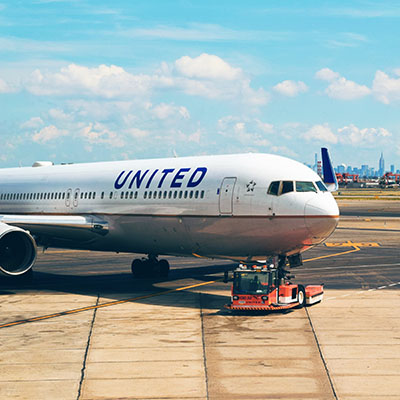How to Leverage Frequent Flyer Miles in 2024
Travel Team | Dec 14, 2023
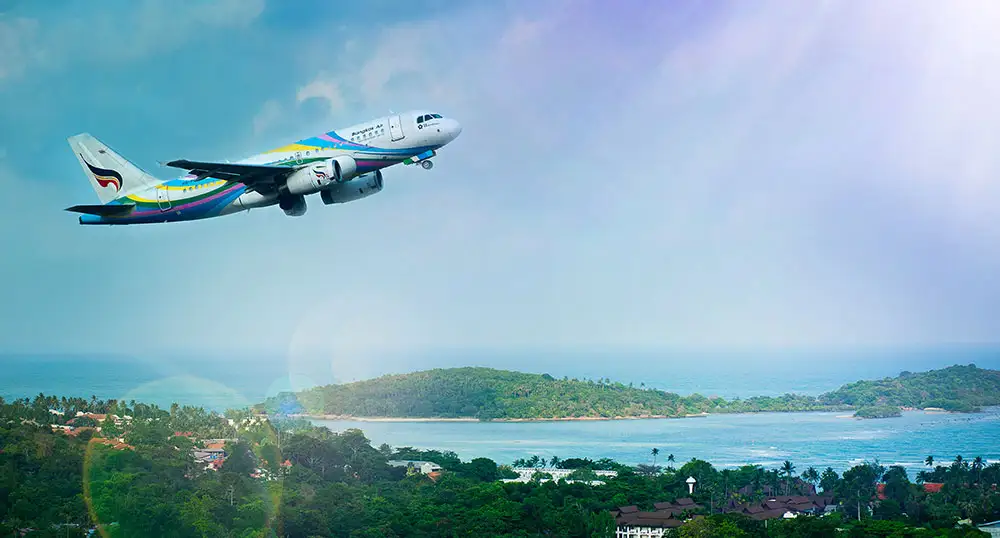
Fly enough, and you fly for free! Has there ever been a sweeter travel deal? But it's not always so sweet and simple. Frequent flyers can be frequently frustrated, are frequently denied, and frequently fail to redeem their miles for the tickets they want.
With airlines struggling over the last decade to find profits, they've made cuts and changes to how they do business. They’ve changed meal service, how much luggage we can bring for free (if any), and now how we can use our frequent flyer miles.
While it’s tempting to throw a tantrum over these changes, that won’t get you very far. Instead, learn to play the game smarter. Figure out which airlines treat their frequent flyers best, know how the industry rewards frequent flyer travel,
and use that information to get the most out of your airline miles.
By being aware of reward travel trends, you have a good chance of getting that seat you want for free.
Five Tips for Frequent Flyers
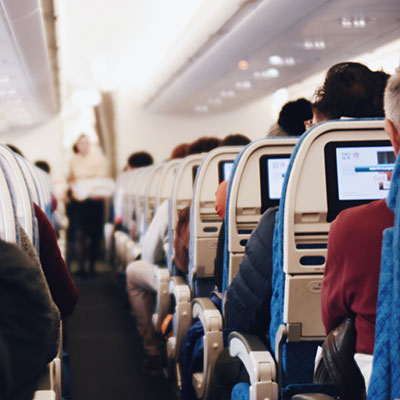
1. Book reward travel during the optimal booking window.
There used to be all kinds of “secret” formulas for the best time and day to purchase a flight. Today, airlines are constantly changing their pricing structures to increase their revenue, so these formulas don’t do us much good. Generally speaking, however, experts agree that for a domestic flight, the cheapest airfares can be found 21 to 45 days ahead of time. For international flights, the window is a bit farther out, with the best prices usually around two to four months before departure. If you’re flying at peak times — summer or around the holidays — aim for three to six months instead.
The good news is that we can use technology to remove some of the guesswork. Travel websites and apps like Hopper use artificial intelligence to analyze fluctuations in price over time, then base their recommendations on long-term trends. It’s still a bit of a guess, but it’s an educated one through machine learning.
Do these tips for finding the best airfare apply for travel rewards and not just if you’re paying cash? If you have frequent flyer miles or are looking for award flights, the rules aren’t too different. Delta’s website says the best time to book award travel is at least 30 days before domestic travel and 60 days before international travel. Flights that are more expensive as a cash purchase will often cost you more frequent flyer miles.
Award travel deals can also often be found if you book right when the flight calendar opens. Most airlines make their flights available about 330 days prior to departure. Some will be a full year, others less, so if you have travel rewards with a certain airline, take some time to find out the earliest you can book travel with them.
By booking with frequent flyer miles as soon as the calendar opens, you’ll typically find more options. That’s often when the most award seats are available. On the other end of the spectrum, you can sometimes find award seats in Business and First class at the last minute if airlines don’t think they’ll be able to fill them with cash purchases. It’s a bit of a gamble, but if you have the flexibility (and that spontaneous mindset), it could work in your favor.
It also pays to travel during the off-season and on days when there’s less demand (mid-week, for example). Your tickets will likely be less expensive at those times, so this could be the year you finally figure out how to travel to Europe on a budget or check off one of the items on your travel resolution bucket list.
2. Call a customer representative.
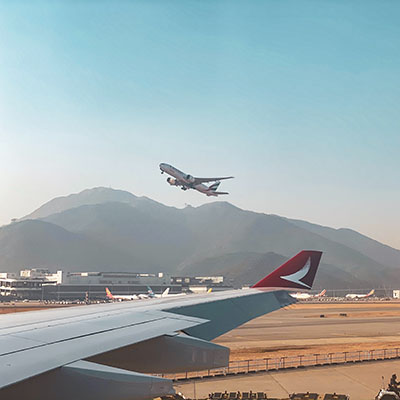 There have been times when the internet said I could not book a reward ticket for a certain date. But talking to someone on the phone allowed me to do so. Real people can offer real solutions that we might not find in the virtual world.
There have been times when the internet said I could not book a reward ticket for a certain date. But talking to someone on the phone allowed me to do so. Real people can offer real solutions that we might not find in the virtual world.
If you can't find the rewards flight you are looking for online, call the airline's 1-800 number and work with the telephone representative to see if there is anything they can do. They can sometimes free up blocked seats, book you on an alternate route, or find out if recent cancellations will allow you to get that ticket.
Yes, we all hate searching for phone menus, waiting on hold, and being directed and redirected to finally talk to someone. By the time you do reach someone who can help, you might feel like giving an innocent representative a “good talking to,” lamenting how unhappy you are with the hold time.
Use this to your advantage. Remember that when you finally get someone on the other line, they are a real person. They've been talking to unhappy customers all day, and it's refreshing to have a pleasant, positive voice to talk to. As the saying goes, you catch more flies with honey than vinegar.
Another word to the wise: don’t wait until the last minute to call. It’s no secret that airlines have been understaffed following the pandemic, resulting in flight cancellations, lengthy delays, missing baggage, and other travel headaches. It very well could take you several days to reach a human being on the phone, so be patient.
3. Compare frequent flyer programs.
It's worth researching the different reward programs, finding out which one works best for you, and then flying that airline as much as you can in order to rack up the miles. What should you look for when comparing frequent flyer miles?
- How much are miles worth? The value of frequent flyer miles varies between airlines and can change over time within a single reward program. As of mid-2023, the value of 10,000 Delta miles was about $120. The same number of miles for Southwest was $135, and $150 for American.
- Is there a join fee? Some reward or loyalty programs are free to join. Others will have a fee when you sign up. Make sure you know what the expenses are before you agree to anything.
- Can you earn miles on any seat? We’ve all heard of blackout dates, but it’s also important to consider if there are blackout seats. Some airlines won’t let you accumulate miles on basic economy tickets, or if they do, you still might not get as many miles for that ticket. If you have to constantly upgrade your seat just to get the miles, you may not end up saving money.
- Do miles expire? If you truly are a frequent flyer, as in long-haul flights every month, then you probably don’t have to worry too much about your points expiring before you get a chance to use them. If you fly a little less frequently, it might be worth it to choose the program with miles that never expire, even if they reward fewer points, so you don’t leave any on the table at the end of the year.
- Are there re-banking fees for cancellations? If you book a flight using your miles and then have to cancel, some airlines will charge a fee to credit your miles back to your account. It’s worth noting that some travel insurance will reimburse you for those re-banking fees if you canceled your trip for a covered reason.
- Are there upgrades included in the mileage program? When you join an airline’s loyalty program, you might get other upgrades included in the deal. This might be access to their airport lounges, free drinks, or waived baggage fees.
- Does the airline have partnerships with other companies? Delta has agreements with Airbnb and some hotels so that you earn miles when you book accommodations with certain chains. You can also earn extra miles when you use Lyft or even buy your Starbucks when you link your accounts.
Whichever you choose, remember that awards tickets aren’t actually free. Basically, you have to spend money on one flight (or a coffee) to save money on another. Choose the right program for your style of travel and book your travel rewards carefully.
The best frequent flyer programs for 2024
Wallet Hub compiled a list of the best frequent flyer programs based on various criteria, including the value of rewards points and miles to blackout-date policies. Here are the top five:
- United Airlines - Mileage Plus
- Alaska Airlines - Mileage Plan
- Delta Air Lines - SkyMiles
- Hawaiian Airlines - HawaiianMiles
- American Airlines - AAdvantage
These are the same top five from the previous year. United and Alaskan flip-flopped positions, but the rankings largely remained unchanged.
It is worth noting that Delta has made some key changes to its SkyMiles program in the last year or so, and not all of them were popular. The airline has since updated its policies again in the face of the backlash, but the full fallout remains to be seen.
Because each program offers rewards a bit differently and those programs change periodically, make sure to do your research. The best program for frequent flyers may not be the same program for average or light flyers. And what worked for you last year might not be the best plan this year. It’s all about your flying frequency and individual needs.
4. Use frequent flyer miles for upgrades cautiously.
There are a number of dated internet articles on this topic that recommend upgrading as the best value for redeeming frequent flyer miles.
The trend is moving towards upgrading being less and less your best value for redeeming frequent flyer miles. Some airlines won’t even let you upgrade after booking your flight, or they also require cash payment in addition to miles.
Gary Leff, who runs View From the Wing, said in an interview with USA Today that while upgrading used to be the smartest way to spend miles, this is no longer so as many mileage-based upgrades have gotten expensive: "U.S. airlines either restrict you from being able to use miles to upgrade on the cheapest fares or require a cash copay to upgrade.” He concluded that, "Free seats are usually a better deal."
5. Take advantage of sign-on bonus miles.
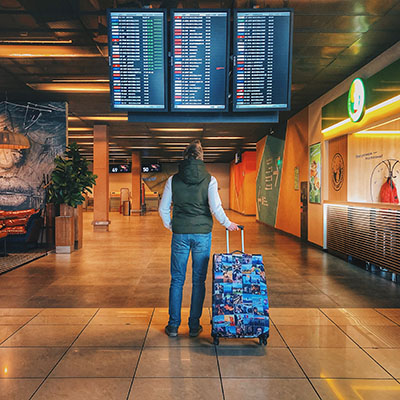 Every airline's mileage program has an accompanying credit card program where you earn miles for every dollar you spend. Most offer 25,000 to 50,000 miles just for signing up for a card. That could be enough miles for a roundtrip domestic
ticket, or even a ticket to Central America or the Caribbean.
Every airline's mileage program has an accompanying credit card program where you earn miles for every dollar you spend. Most offer 25,000 to 50,000 miles just for signing up for a card. That could be enough miles for a roundtrip domestic
ticket, or even a ticket to Central America or the Caribbean.
In general, the cards have annual fees between $65 and $95, but even these are negotiable. If you call the credit card company and try asking, many will either reduce the fee or make it disappear altogether.
When dealing with the credit card representative, remember to always adhere to the advice from tip #2. Be kind and be human, and you'll be treated kindly and humanely.
Most credit cards require you to spend a few thousand dollars before you are awarded miles, so only opt-in if you would be able to make enough purchases in the allotted time to be awarded miles (and not amass unnecessary debt).
Monitor your credit score
Important note: Your credit score is affected by both the number of cards opened and closed, as well as the number of cards open at any given time, so make sure you keep this in mind during this process and don't overuse it.
As long as you pay your cards off on time and avoid doing exactly what the card companies want you to do (incur debt), the payout is free travel that could save you thousands of dollars annually.
Just because the rules are changing to make rewards travel trickier, it doesn't mean you need to lose out. It just means that you need to do some legwork to get the same deals you did a few years ago.
Frequent Flyer Deals Are Still Out There.
The skies are open, and the opportunities to fly freely through them are readily available. It's likely you'll be charged for your lunch, and it won't be the most delicious meal you've ever had, but something about eating at 30,000 feet above the ground on a reward travel seat makes it taste delicious.
What About Travel Insurance?
While you cannot use travel insurance to protect a flight you “paid” for with airline miles, trip protection can cover other prepaid, nonrefundable trip costs if you need to cancel, interrupt, or delay your trip for covered reasons. It can also reimburse you for missing, delayed, damaged, or destroyed baggage. And, like we said above, travel insurance can reimburse you for fees associated with re-banking your frequent flyer miles if you cancel your trip for a covered reason.
Visit SevenCorners.com or talk to one of our licensed travel insurance agents to learn more about your options for insuring your next trip.
Search Posts
Receive our monthly inspiration and travel tips from the travel insurance experts.
Sign me upThis website and various social media updates provided by Seven Corners contain content, information, articles, videos, and links to websites created by third parties. Seven Corners, its owners, and its employees neither endorse nor are responsible for the accuracy, timeliness, or reliability of any third-party information, statements, opinions, or advice and are not liable for any loss, harm, or damage caused by your reliance upon them. Use of such information or the linked websites is entirely at your risk. Concerns regarding this third-party content should be directed to the third party. Seek professional advice, as appropriate, regarding your use of such information and websites.
Because the information on this website and in Seven Corners’ blogs and other social media is written and compiled using knowledge and information available at a certain point in time, it may become outdated. For that reason, information, events, legal requirements, and product changes (including benefits, limitations, exclusions, and services) may not be up-to-date, complete, or accurate at the point in time it is being read. Again, use of such information is at your risk.
